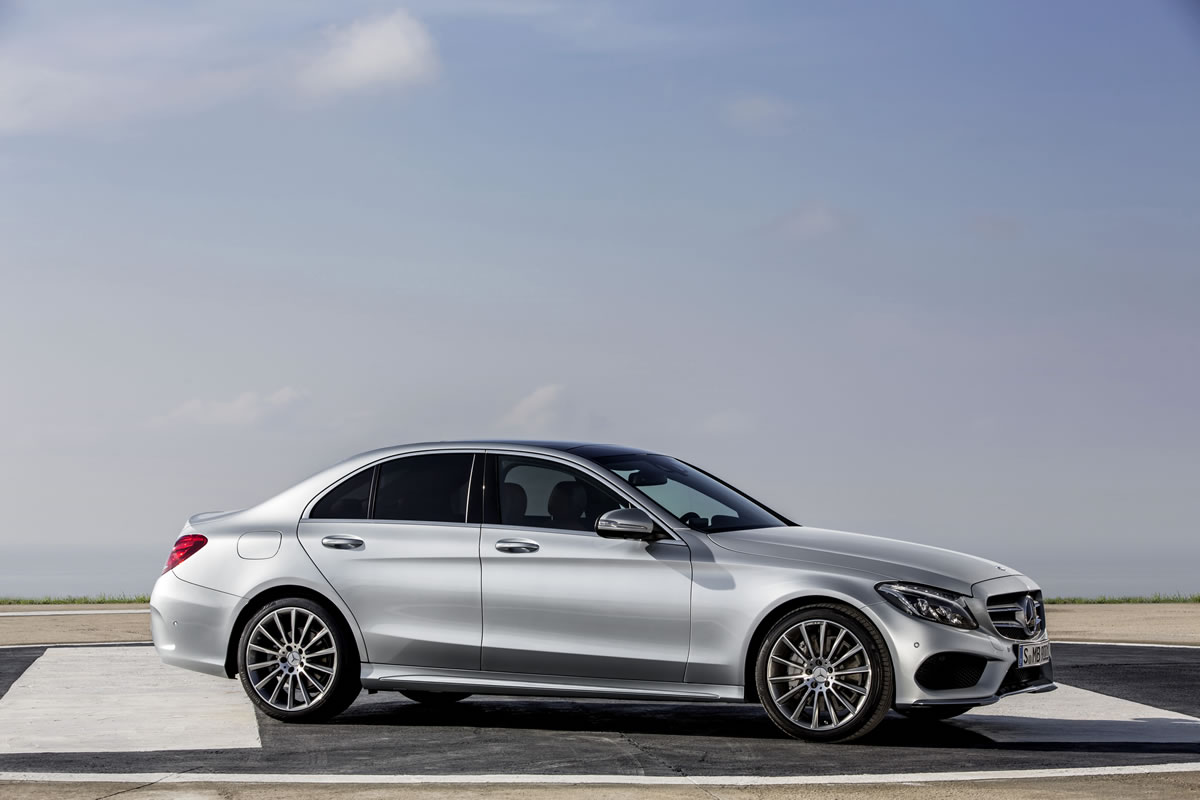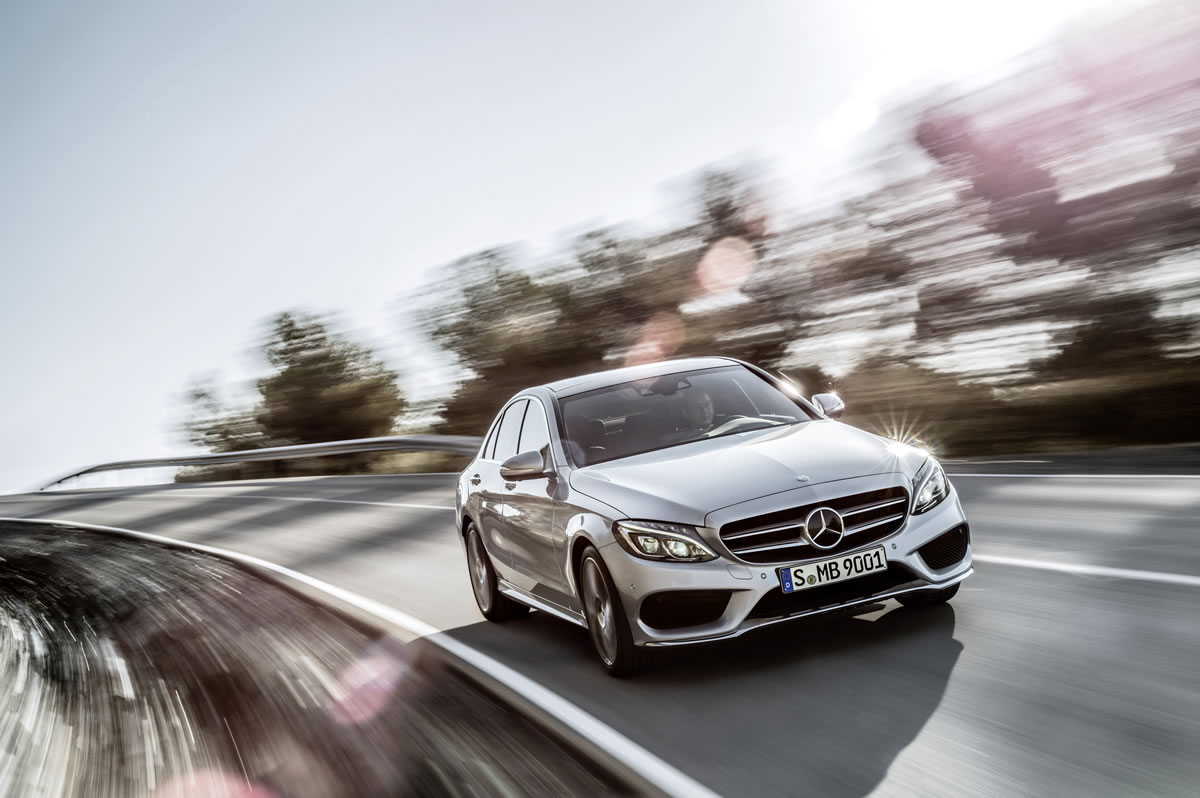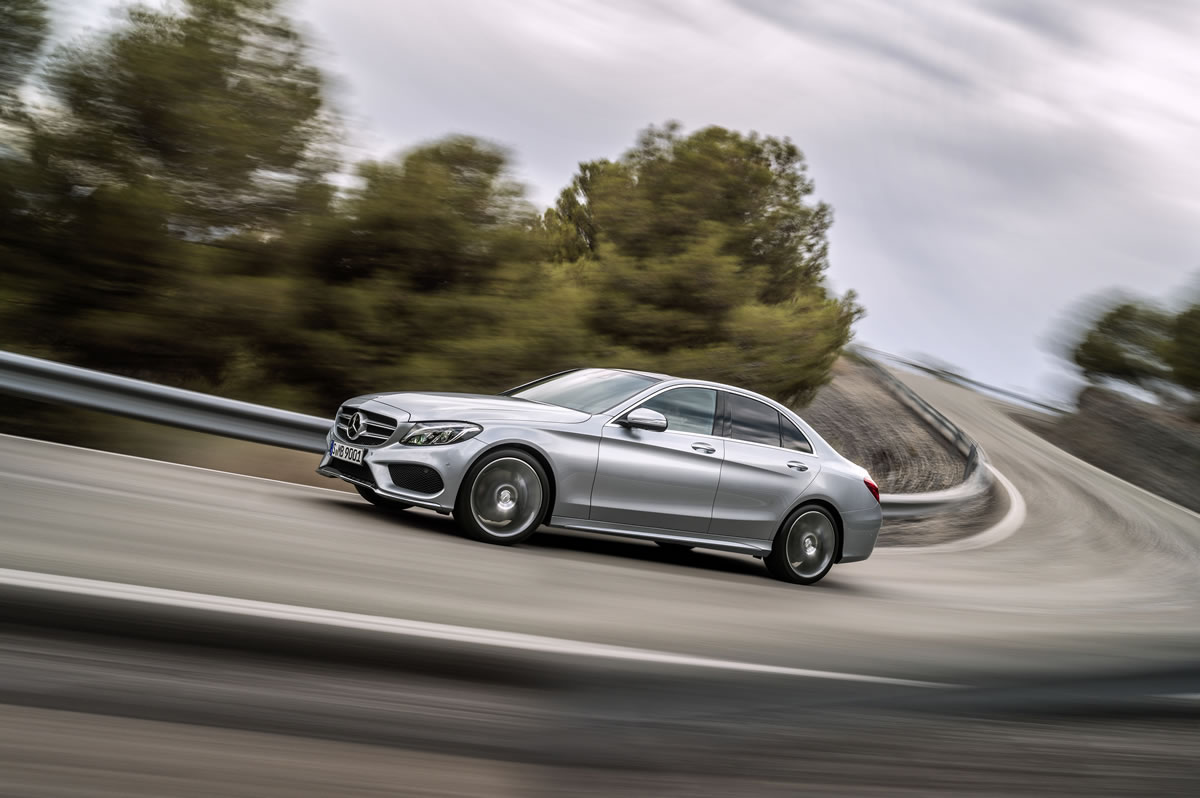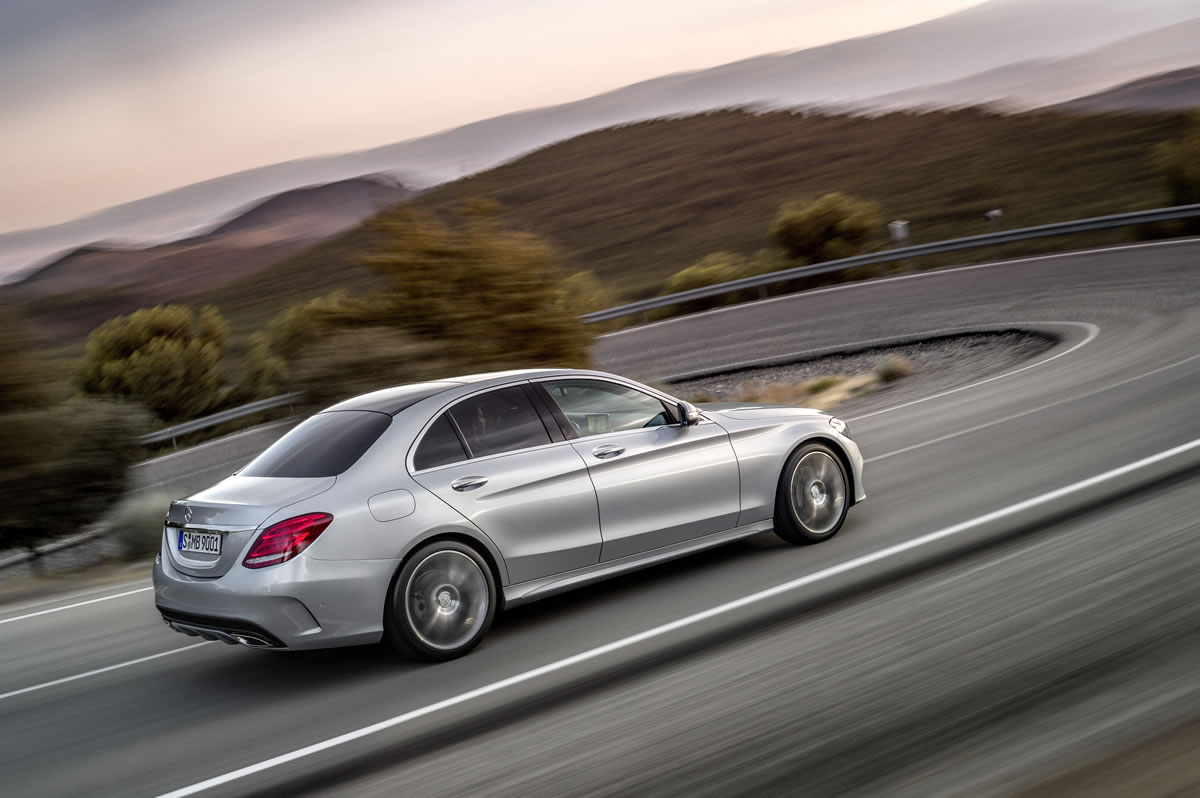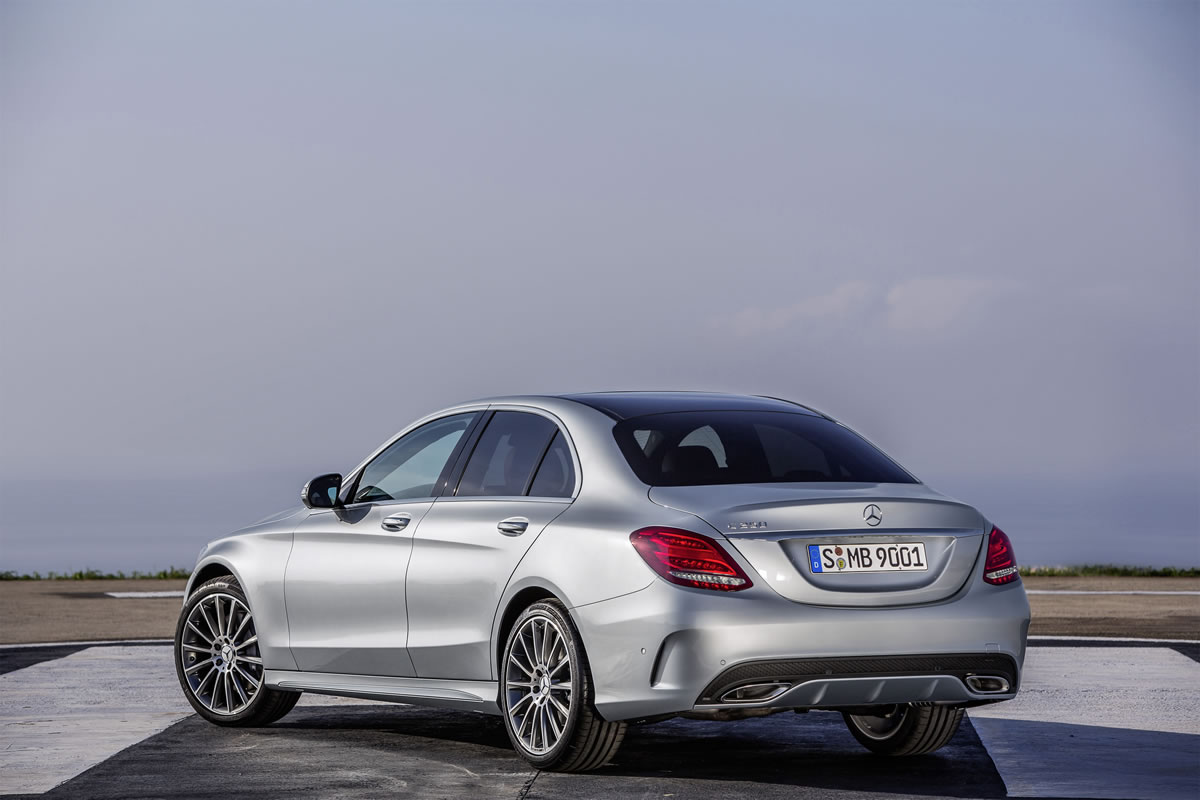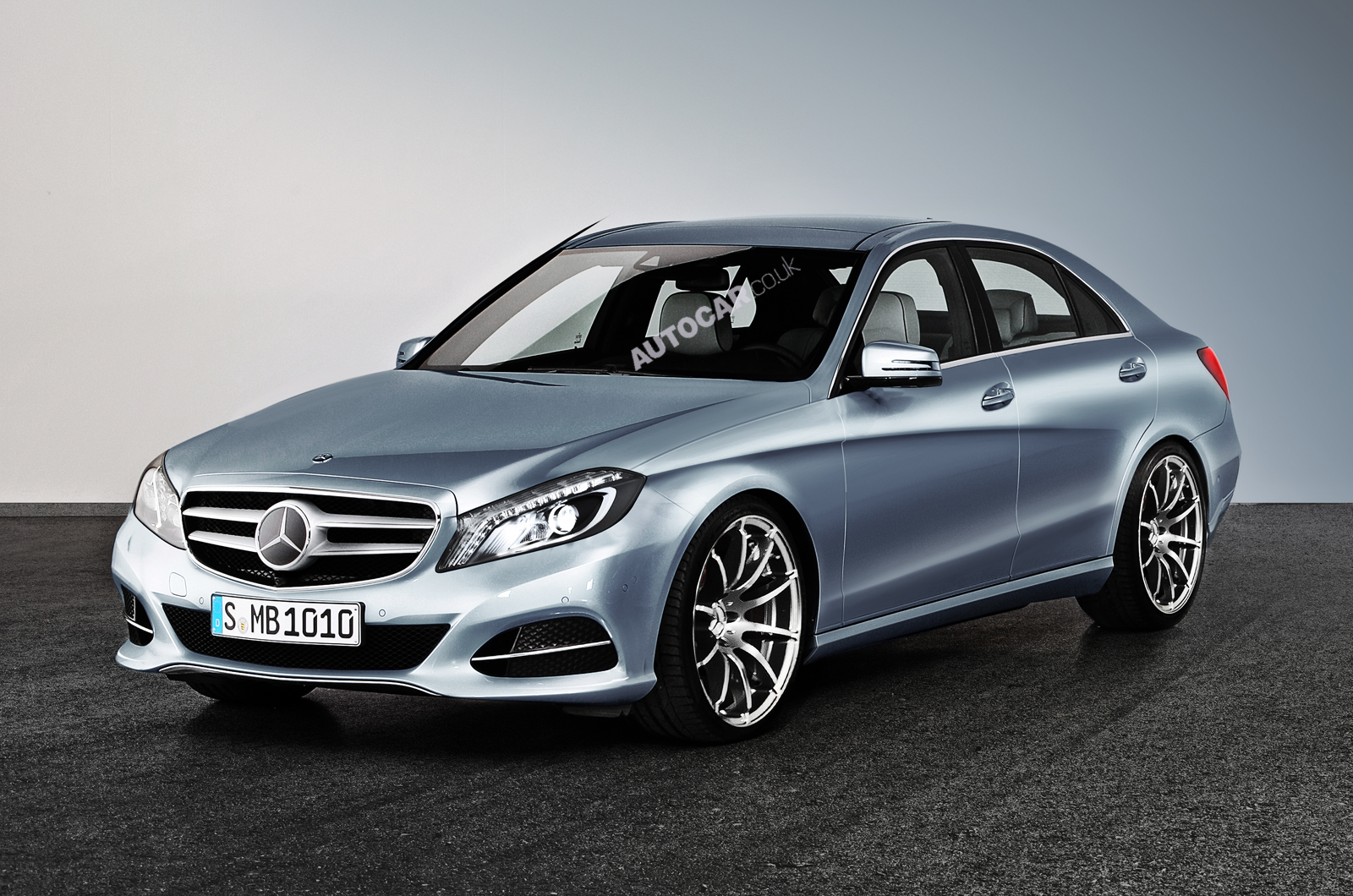Update: Mercedes-Benz C-Class Debuts in Detroit (20 Photos and Video)
Yesterday we brought you a rendering of what the upcoming S-Class Coupe may look like, and today, we have two renderings of what the new Mercedes C-Class may look like thanks to the artists at Autocar.

Mercedes-Benz C-Class
The all-new Mercedes-Benz C-class will look far more dramatic than today’s model and be imbued with a big dose of sporting intent.
The fourth-generation C-class will also be offered with the latest in-car networked internet connectivity and cutting-edge safety tech. These features are part of a bid to endow it with a more contemporary standing than ever before to take the challenge to the BMW 3-series.
The new model is set to get its first public airing in just over a year’s time at the 2014 Geneva motor show. It has been thoroughly re-engineered with the express aim of attracting younger buyers.
Mercedes insiders claim that little or nothing will be carried over from the existing C-class in a move described as a “new beginning” for the 3-series and Audi A4 rival.
“We want once and for all to discard the idea that the C-class is a car bought by your grandfather, ” said a high-ranking Stuttgart-based official involved in the new car’s conception. “We have gone to extensive lengths to ensure it will meet the expectations of a younger generation of buyers, both visually and technically.”
The change in emphasis for the new car, codenamed W205, has been driven by the decision to add the smaller CLA to the Mercedes line-up this coming summer.
The swoopy four-door CLA, previewed by the Concept Style Coupé, is planned to occupy a slightly lower market segment, with more affordable pricing than today’s C-class. This will allow the next C-class to be repositioned half a class higher.
Four new C-class models are planned. Alongside the initial saloon and estate, set to be revealed in March 2014, Mercedes is also preparing a more individually styled successor to the coupé as well as an all-new fabric-roofed cabriolet for launch in 2015.
All four are set to receive the go-faster treatment from AMG, which is preparing a new twin-turbocharged 4.0-litre V8 engine for the new car.
Dimensions
The length of the new C-class has increased by 100mm over today’s model to 4700mm. That puts it on a par with the Audi A4 and extends it 75mm beyond the 3-series saloon.
Some 80mm of the added length is concentrated within the wheelbase, which increases to 2820mm. Autocar has also revealed that the tracks have been widened by up to 40mm to give it a larger footprint. A corresponding increase in width takes it to about 1810mm.
The bigger external dimensions are claimed to provide the new model with significantly improved interior space. Leg, shoulder and headroom have improved in the front and rear, this is according to Autocar sources. The new C-class is also set to offer greater luggage space. The boot capacity of the saloon has risen to 485 litres, which is more than in an A4 or 3-series.
Chassis
The new C-class will be the first model to use Mercedes’ new MRA (modular rear-wheel drive architecture) platform. The hot-formed steel monocoque structure is, in lengthened forms, also set to underpin future incarnations of the E-class and S-class, among a whole line of models. It has been conceived using the latest construction techniques and, together with further weight-saving measures brought to the chassis, is said to help the new car to undercut its predecessor on the scales despite its considerable increase in size.
Nothing is official yet, but a new base C160 model is said to weigh less than 1380kg, despite increases in both static and dynamic rigidity, both of which are described as class-leading.
The new C-class looks likely to eschew the MacPherson strut layout of the existing model up front for a new double wishbone arrangement, providing greater wheel control and added lateral stiffness for improved handling. The rear, however, retains a similar multi-link system to the existing C-class’s, but it has been extensively redesigned for added levels of refinement.
Engines
Unlike the CLA, which uses a transverse engine layout, the new C-class retains longitudinally mounted engines. A new mounting procedure sites them lower in the engine bay and slightly more rearward than with today’s model for improved weight distribution and a lower centre of gravity.
Mainstream engines will include four-cylinder and V6 petrol units, ranging from a 184bhp 2.0-litre turbo to a range-topping 330bhp twin-turbo 3.0.
The diesels are initially likely to include an upgraded version of the existing 2.1-litre engine in up to four states of tune, spanning 120bhp to 220bhp.
All engines will receive automatic stop-start and brake energy recuperation, along with other efficiency-boosting measures. Combined with the reduction in kerb weight, this is claimed to bring improvements of up to 20g/km in CO2 emissions.
Mercedes also plans to introduce a plug-in petrol-electric hybrid version of the new C-class in 2015. Details are scarce, but sources suggest that it will have an all-electric range of up to 18 miles.
Further developments include revised driveline architecture with an altered driveshaft layout. This will allow Mercedes to produce the new C-class in standard rear-wheel drive and optional 4Matic four-wheel drive in both left-hand-drive and right-hand-drive guises for the very first time.
Up until now, driveshaft packaging constraints have caused the 4Matic C-class to be produced in left-hand-drive form only. The new layout will be adopted by the next GLK SUV, which will also be produced in right-hand drive.
The new C-class is set to be launched with a six-speed manual or a newer version of today’s seven-speed automatic gearbox, depending on the engine. A new nine-speed automatic transmission is currently undergoing development. However, Mercedes sources suggest that it is unlikely to find its way into the C-class until the next model receives its planned mid-cycle facelift, in 2017. The plan is that it will initially find its way into more upmarket offerings before trickling down through the line-up.
New tech
Adaptive damping control will be standard on all models and a new electro-mechanical steering system will offer a range of hands-off automatic parking options.
The technology that Mercedes plans to use in the new C-class includes a full range of safety features also destined for the facelifted E-class. It features a stereo camera that provides additional collision prevention functions, such as the car braking itself automatically to reduce the severity of an impact.
Also included will be a new Distronic Plus feature with Steering Assist, which keeps the car centred in a chosen lane and tracks traffic in tailbacks. There will also be Brake Assist Plus with Junction Assist, which detects cross-flow traffic and pedestrians and can boost the braking power if insufficient force is applied by the driver to avoid an impact.
Update: Mercedes-Benz C-Class Debuts in Detroit (20 Photos and Video)
